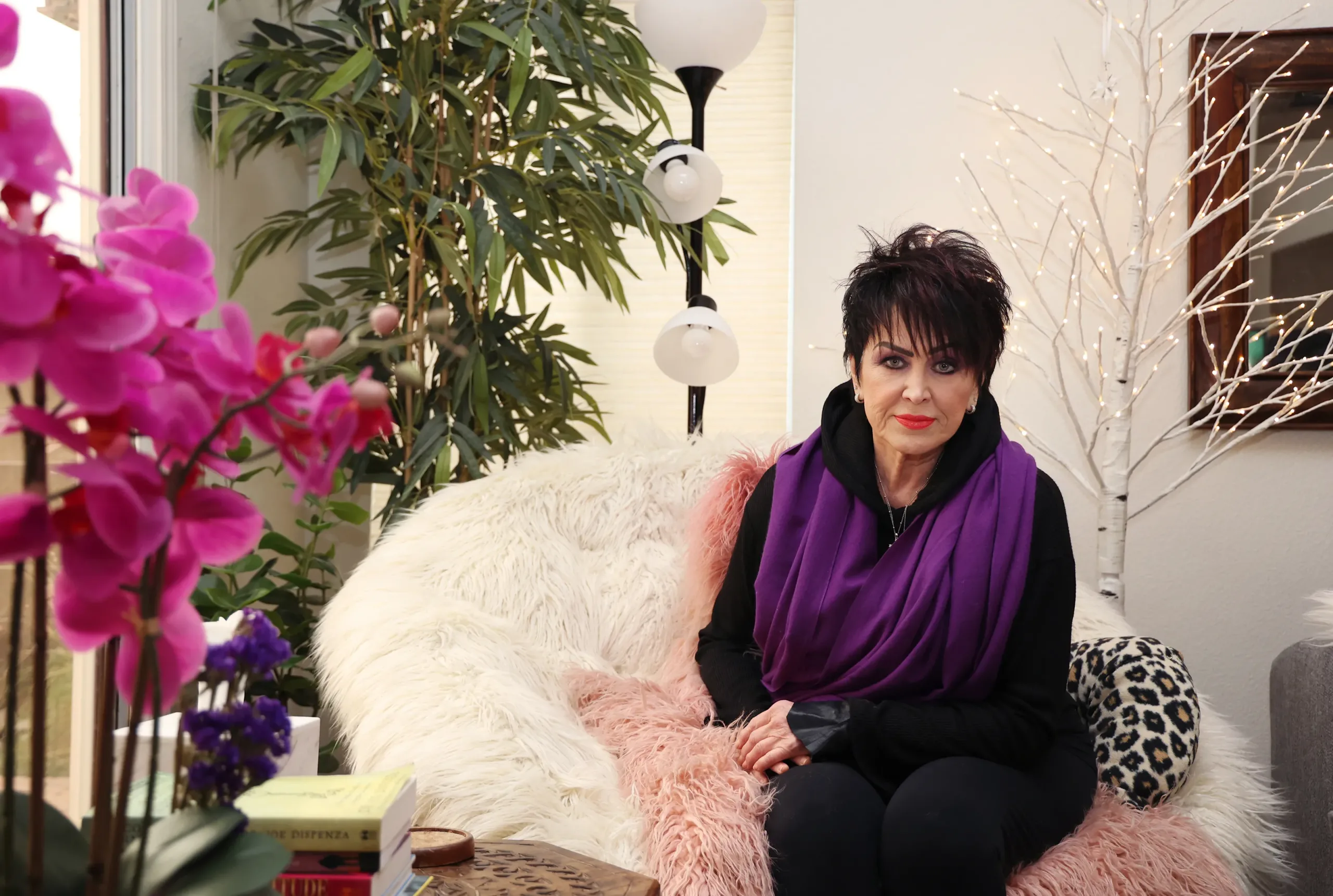75-year-old Liza Likins, a backup singer for music legends like Stevie Nicks and Linda Ronstadt, found herself lonely and depressed after her husband, Greg, passed away in 2020.
When a charming blond man who resembled her late husband of 23 years began messaging her on Facebook, Likins initially rebuffed him for four months.
Eventually, she was drawn into a relationship with “Donald,” who claimed to be a gold miner in Australia.
“Many months later, he sent me a photograph of himself next to a Buddha statue meditating and I meditate. That’s what got me initially.”
The online relationship began around the summer of 2021. Likins said it started with the scammer asking for gift cards to load up his phone with pre-paid calls so they could talk. Later, it escalated.
“He said I am sending you this safe,” Likins said. “He sent me a picture of a big, red safe and they needed $140,000 to transport the safe from Brisbane, Australia to my house in Las Vegas, Nevada.”
Over time, the scammer progressively asked for more money.
For more than two years, he seduced Likins with messages like “I can’t love anyone else but you” and “I know we are meant to be together.”
“I ended up losing $758,000, which was my retirement fund, inheritance from my husband, and my brand new house, which was valued at over $600,000,” Likins said. “Since that happened, I’ve had my power turned off twice. I lost 40 pounds because I didn’t have any money for food.”
The actual man in the photos sent to Likins isn’t “Donald Horst,” but a man named Raho Bornhorst, a spiritual teacher based in Germany.
Bornhorst said he’s had at least 100 women reach out to him believing they were in an online relationship with him.
“They realize it’s not me that they love,” Bornhorst said.
About seven years ago, Bornhorst said he first learned scammers were using his identity to lure women.
Since then, there have been hundreds, if not, thousands of fake profiles with his pictures.
He’s contacted Meta but said it hasn’t stopped scammers from continuing to create fake accounts.
On Meta’s website, the company writes:
“In line with our commitment to authenticity, we do not allow people to misrepresent themselves on Facebook, use fake accounts, artificially boost the popularity of content or engage in behaviors designed to enable other violations under our Community Standards.”
“They should imagine how much this is really tearing hearts apart,” Bornhorst said. “I mean, there’s like a million people who suffer.”
According to the Federal Trade Commission, reported losses to romance scams totaled more than $1 billion in 2023.
Likins said she lost everything and now she hopes her story helps others.
“If one person sees this and ends up not falling for these scammers, then I’ve helped somebody,” Likins said. “Because it’s painful for me to do this.”
An online reverse search engine company called Social Catfish helped Likins find out she was being scammed.
According to Social Catfish, the scammer is believed to be from Nigeria.
